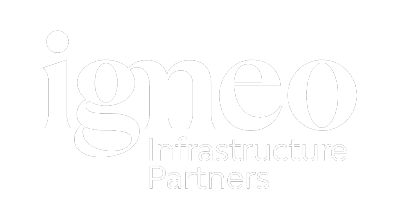Showing 1 to 26 of 26 results.
Consider listing property as part of real asset portfolios for long-term returns, liquidity, and inflationary hedge. This article explores these factors and emphasizes the investment potential of listed property as a complement to real asset portfolios.
The outlook for the global economy and financial markets looks more uncertain today than it has for a long time. Both interest rates and inflation have risen sharply. There is a growing consensus that much of the world will shortly be experiencing slowing economic growth. Understandably, investors are asking what their options are. With a wide array of asset classes available, which are best placed to offer investors resilience in the current environment, but also sustainable investment opportunities?
Based on the fundamentals heading into 2020, Head of Global Property Securities, Stephen Hayes, expects listed property sector valuations to remain at current levels. Our strategy’s largest exposures are to residential, logistics and office assets.
This paper examines our investment teams’ approach to managing a global listed property portfolio and highlights how it aims to preserve clients’ capital in a climate of rising interest rates and/or softness in property prices.
As more carbon emission regulation comes in globally – as we expect it will – Real Estate Investment Trusts (REITs) with emission reduction plans are likely to be better-placed than their peers as the cost of carbon increases.
Stabilising the climate will require strong, rapid, and sustained reductions in greenhouse gas emissions, and reaching net zero CO2 emissions.
Global economic growth continues to grow at a moderating pace. We expect global GDP growth to continue to slow into 2020 along with the Chinese economy. High Chinese Local Government debt, moderating terms of trade and a sluggish domestic economy continue to weigh on growth.
There were a number of structural trends leading up to the Covid pandemic that were all very well understood. And the pandemic has given rise to some newer emerging trends. And what is central to the majority of these trends is the rapid advancement and continued adoption of technology which is driving societal change.
Global GDP growth continues at long term trend levels, mainly driven by developed countries where economic growth remains broad based across the household, private and Government sectors.
Globally, all major property markets rose in local currency terms in December except for Japan, which ended the month slightly lower. New Zealand was the strongest property market in GBP terms, returning 9.0%, followed by the UK, which rose 8.2%. The FTSE EPRA/NAREIT Developed Index (TR) rose 1.5% in GBP terms.
Credit portfolios with genuine Environmental Social and Governance (ESG) integration could be a canary in the coal mine for potentially difficult-to-quantify risks and opportunities, including those likely to stem from climate change and the energy transition. While governments globally move at different speeds to put in place net zero policies, ESG-focused credit investors are taking decisive, early action to reflect these factors in their portfolio allocations.
East Cermak has over 1.1 million square foot of gross lettable area and draws on over 100 megawatts of power from three separate grids. To put its power output in perspective, it’s the equivalent of the amount of power used by 100,000 households.
Globally, major property market returns were relatively strong in March against a weak broader market. The FTSE EPRA/NAREIT Developed Index (TR) rose 0.66% in GBP terms. In local currency terms, the UK (4.3%) was the best performing market, while Hong Kong (-2.5%) was the worst.
Once again, 2021 was a year full of surprises and challenges, with ongoing Covid disruptions and China turning from a global outperformer to underperformer. The Chinese government’s policy crackdowns, especially in the internet, education and property sectors, were sudden and dramatic.
Investing in property securities provides investors with an opportunity to exploit trends in various property sectors through the listed property trust market, without the significant transaction costs that typically apply when investing in direct property.
Global asset management group focused on providing high quality, long-term investment capabilities to clients. We bring together independent teams of active, specialist investors who share a common commitment to responsible investment principles.
First Sentier Investors, a leading global investment manager, has today announced the appointment of Charline Jezequel and Sascha Beisheim as senior institutional business development directors.
With the potential for long term growth prospects and a track record of resilience through economic downturns, this increasingly institutionalised property sector can be a defensive play for investors.
An important part of our approach has been the work of our climate change working group which concluded its research earlier this year.
While the pandemic is still far from over, a number of key leading indicators point to a healthy and broad-based recovery in China. Industrial production, trade activity and retail sales have been strong; and in stark contrast to the lockdowns and travel restrictions in early 2020, domestic travel, tourism and the leisure sectors in China have sprung back to life.
Leading global investment manager, First State Investments today announced the completion of its sale from Commonwealth Bank of Australia to Mitsubishi UFJ Trust and Banking Corporation, a wholly-owned subsidiary of Mitsubishi UFJ Financial Group, Inc. (MUFG), for US$2.7 billion.
As we return to the skies for that first face-to-face meeting, reuniting with family or taking that well-deserved holiday, the airports we pass through will be markedly different to what we knew before.
The third quarter of the year was a highly eventful one during which the trade war between the US and China took a turn for the worse.
2021 will be a year of recovery. This is not surprising given last year’s economic downturn. If vaccines are being rolled out gradually during the year, we believe the economy will recover, especially those sectors that have been hit hard like travel. Hong Kong’s travel sector declined by 99.9% last year so there really isn’t much room left to decline.
2024 was a good year for global listed infrastructure. Strong earnings for energy midstream and a step-change in the earnings growth outlook for utilities helped the asset class to shrug off rising bond yields and political uncertainty.
Although financial types everywhere seem to believe that things are absolutely dire, world-ending and the sky is about to fall on our heads, most of humanity have better lives now than in all of history. That is certainly so in the developed world. Prosperity, in our time, has yet again been underwritten by those clever technocrats at the world’s central banks.
Get the right experience for you
Your location :  Switzerland
Switzerland
Australia & NZ
-
 Australia
Australia -
 New Zealand
New Zealand
Asia
-
 Hong Kong (English)
Hong Kong (English) -
 Hong Kong (Chinese)
Hong Kong (Chinese) -
 Singapore
Singapore -
 Japan
Japan


























 United Kingdom
United Kingdom 